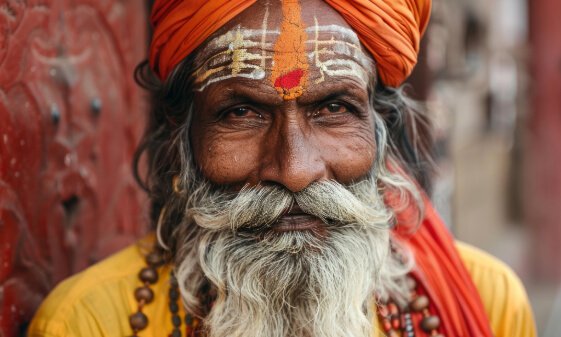Uttarakhand Targets ‘Fake Sadhus,’ Risking State Overreach into Religious Identity
Police Question Over 1,200 Alleged Impostors Posing as Sadhus and Kanwariyas
July 16, 2025
The Uttarakhand government has launched Operation Kalanemi, a state-wide police campaign to identify individuals posing as saints and Kanwariyas. The stated aim is to preserve the religious and cultural sanctity of the state. This raises a serious constitutional concern, because it suggests the government is stepping into the role of deciding who counts as a legitimate religious figure, a function it has no authority to perform in a secular democracy.
Under this operation, the police have so far interrogated 1,250 individuals and arrested 34 people allegedly masquerading as saints and sages, as reported by Hindustan Times. According to the Uttarakhand Police, those arrested were engaged in what they called deceptive practices while posing as spiritual figures. Twenty-three of those arrested are said to be from other states.
The operation was launched on July 10 on the instructions of Chief Minister Pushkar Singh Dhami. The stated objective, as described by the police, is to maintain religious and cultural sanctity in the state. Officials have been directed to identify suspects pretending to be Kanwariyas during the annual Kanwar Yatra.
Senior Superintendent of Police Ajay Singh has been quoted saying the police were acting against those “roaming around in the guise of saints and sages,” and legal action was being taken against them. He did not elaborate on the nature of the alleged deceptive practices or what laws were being invoked.
Officials say the campaign is needed to maintain public order during a major religious event, especially after reports of violence. But the government’s language goes further than standard policing – though genuine policing efforts in relation to criminal behaviour appear to be lax. By saying the aim is to preserve “religious and cultural sanctity,” the state appears to be stepping into religious matters. This raises a serious constitutional issue, as the government seems to be policing “identity” rather than actions.
The Indian Constitution affirms the secular character of the state, meaning it neither favours nor discriminates against any religion and must treat all religions equally. Article 25 guarantees individuals the freedom of conscience and the right to freely profess, practise and propagate religion. Articles 26 to 28 protect the rights of religious denominations to manage their own affairs, establish institutions and decide how they are run. While the state may regulate religious practices in the interest of public order, morality or health, it cannot define what constitutes a religious belief or truth, nor can it control clergy or interfere in matters of doctrine.
Therefore, the role of the state is limited to preventing crime and ensuring public order. It cannot assume the authority to decide who is a legitimate religious figure. Broad terms like “cultural sanctity” or “deceptive practices” cannot become grounds for policing appearance or identity without clear legal definitions and procedures.
Religious traditions such as Sanatan Dharma are decentralised, diverse and lack formal hierarchies that confer religious legitimacy. In this context, any state attempt to decide who is a real sadhu amounts to endorsing one version of religious identity over another. This is not compatible with secular governance. Such state-led certification of authenticity invites not just administrative overreach but also politicisation of faith.
The absence of transparent criteria or publicly stated legal grounds for the arrests further complicates the matter. When individuals are arrested on the basis of being “fake babas” without a clear definition of what constitutes deception, there is a risk of arbitrariness. This could lead to targeting of marginal or unfamiliar sects, or even individuals who simply do not conform to a dominant religious image sanctioned by the state.
This issue becomes especially relevant when considering personal religious choices. For example, if someone wishes to walk only a few kilometres as part of the Kanwar Yatra, rather than follow the entire traditional route, should they be stopped or questioned? Religious participation is often personal, flexible and influenced by individual belief. If the state or police begin evaluating who qualifies as a “real” Kanwariya based on distance, dress or behaviour – unless that behaviour is criminal – it’s it risks turning a religious practice into a state-controlled ritual. That kind of scrutiny has no constitutional basis and directly threatens the right to practise religion freely.
Allowing governments to assume the power to determine who is authentic in matters of religion opens the door to future abuse. The same mechanism can be used to suppress dissenting preachers, silence minority interpretations or reward religious leaders who are politically aligned with those in power. This undermines both religious freedom and democratic checks on state power.
Operation Kalanemi comes dangerously close to the kind of state control over religion seen in countries like China and Vietnam, where the state tightly controls religious activity by licensing clergy, approving sermons and monitoring places of worship, allowing only state-recognised versions of religion to function. Without clear laws, fair process and respect for constitutional limits, this drive in Uttarakhand risks turning the police into arbiters of faith – something a secular democracy cannot allow.
You have just read a News Briefing by Newsreel Asia, written to cut through the noise and present a single story for the day that matters to you. Certain briefings, based on media reports, seek to keep readers informed about events across India, others offer a perspective rooted in humanitarian concerns and some provide our own exclusive reporting. We encourage you to read the News Briefing each day. Our objective is to help you become not just an informed citizen, but an engaged and responsible one.

